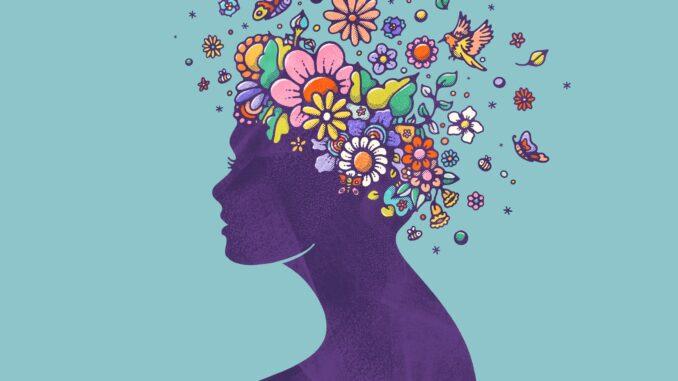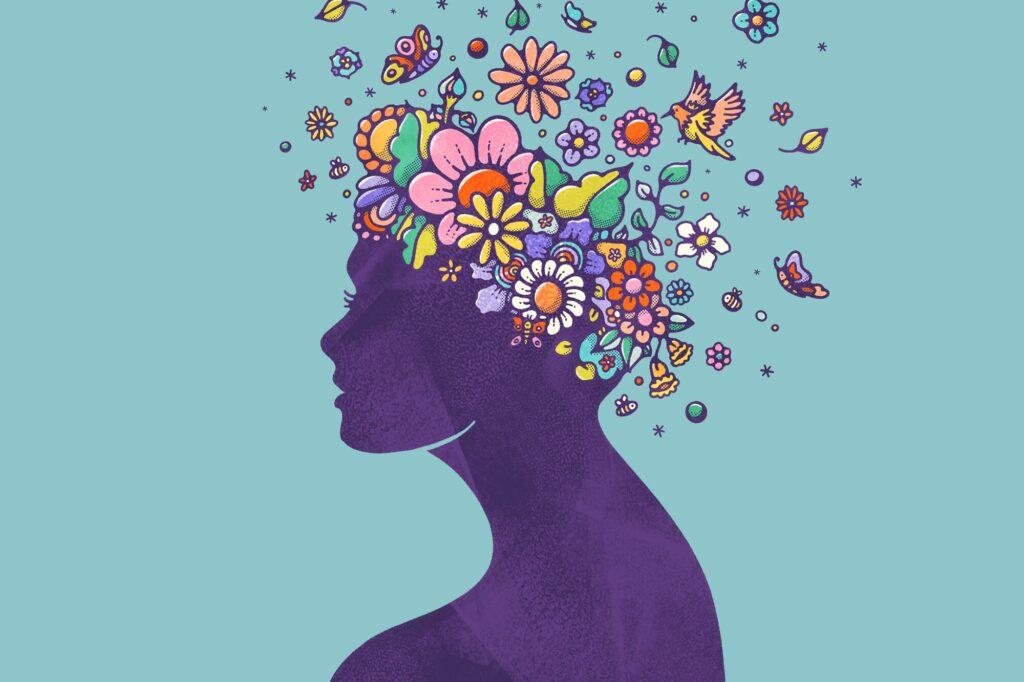
Last Updated on by lizzy
Mental health is a crucial aspect of our overall well-being that encompasses our emotional, psychological, and social well-being. It affects how we think, feel, and act, influencing how we handle stress, make choices, and interact with others. Understanding and prioritizing mental health is essential for leading a fulfilling and balanced life

Early Signs of Mental Health Issues
- Persistent Sadness or Low Mood
- Excessive Worry or Anxiety or fear that interferes with daily functioning and persists for an extended period of time.
- Changes in Sleep Patterns
- Withdrawing from social activities, isolating oneself, or avoiding interactions with others.
- Changes in Appetite or Weight
- Loss of Interest or Pleasure
- Difficulty Concentrating or Making Decisions
- Physical Symptoms with no Clear Medical Cause eg headaches, stomachaches, unexplained aches and pains
Common Mental Health Disorders
Depression
Depression is a mood disorder characterized by persistent feelings of sadness, loss of interest or pleasure in activities, changes in appetite or sleep patterns, fatigue, difficulty concentrating, and thoughts of self-harm or suicide.
Anxiety Disorders
Anxiety disorders encompass various conditions, including generalized anxiety disorder (GAD), panic disorder, social anxiety disorder, and specific phobias. These disorders involve excessive and persistent worry, fear, or anxiety that can interfere with daily functioning.
Bipolar Disorder
Bipolar disorder involves extreme mood swings, alternating between periods of mania (elevated mood, increased energy) and depression. It can cause significant disruptions in a person’s mood, energy levels, and ability to function.
Schizophrenia
Schizophrenia is a chronic mental disorder characterized by a distortion of thoughts, perceptions, emotions, and behavior. People with schizophrenia may experience hallucinations, delusions, disorganized thinking, social withdrawal, and difficulties with cognitive functioning.
Eating Disorders
Eating disorders such as anorexia nervosa, bulimia nervosa, and binge-eating disorder involve distorted attitudes and behaviors related to food, weight, and body image. These disorders can have severe physical and psychological consequences.
Post-Traumatic Stress Disorder (PTSD)
PTSD can develop after experiencing or witnessing a traumatic event. Symptoms may include flashbacks, nightmares, intrusive thoughts, hypervigilance, avoidance of reminders of the trauma, and emotional distress.
Attention-Deficit/Hyperactivity Disorder (ADHD)
ADHD is a neurodevelopmental disorder characterized by difficulties with attention, hyperactivity, and impulsivity. It often begins in childhood and can persist into adulthood, impacting various aspects of life.
Obsessive-Compulsive Disorder (OCD)
OCD involves intrusive, unwanted thoughts (obsessions) and repetitive behaviors or mental rituals (compulsions) aimed at reducing anxiety or distress. These behaviors can be time-consuming and interfere with daily functioning.
Factors Affecting Mental Health
- Biological Factors for instance Genetic predispositions, family history among other.
- The social and physical environment such as poverty, exposure to violence or discrimination.
- Substance abuse and addiction can have severe impacts.
- Early childhood experiences such as neglect, abuse, or unstable family dynamics during childhood.
- Traumatic life events, such as accidents, loss of a loved one, or experiencing violence.
- Psychological Factors such as low self-esteem, negative thinking patterns, perfectionism.
- Cultural and Societal Factors like Cultural norms, beliefs, and societal expectations.
Mental Health Diagnosis
Diagnosis involves the assessment and identification of specific disorders or conditions based on symptoms, behavioral patterns, and the criteria outlined in the Diagnostic and Statistical Manual of Mental Health Disorders (DSM-5), which is commonly used by professionals.
The process of diagnosis typically involves the following steps:
Evaluation
A comprehensive evaluation is conducted by a qualified professional, such as a psychiatrist, psychologist, or licensed therapist. This evaluation may include interviews, questionnaires, and psychological assessments to gather information about the individual’s symptoms, medical history, family history, and overall functioning.
Diagnostic Criteria
The health professional compares the individual’s symptoms and experiences to the criteria outlined in the DSM-5. The DSM-5 provides specific criteria for each mental disorder, including the duration, intensity, and impact of symptoms required for a diagnosis.
Differential Diagnosis
The professional differentiates between various mental health disorders with similar symptoms. They consider other possible explanations for the symptoms, rule out any medical conditions that could be causing or contributing to the symptoms, and consider co-occurring disorders.
Diagnosis Determination
Based on the evaluation and assessment, the health professional makes a diagnosis if the individual’s symptoms meet the criteria for a specific disorder outlined in the DSM-5.
Mental Health Treatment Approaches
Psychotherapy
Psychotherapy, also known as talk therapy, is a common treatment approach for these disorders. It involves meeting with a professional regularly to explore thoughts, emotions, and behaviors that contribute to difficulties.
Different types of psychotherapy, such as cognitive-behavioral therapy (CBT) or dialectical behavior therapy (DBT), focus on specific techniques to help individuals develop coping strategies and promote positive behavioral changes.
Medication
Medications can play a vital role in managing these disorders, particularly when symptoms are severe or significantly impacting daily functioning. Psychiatrists can prescribe medications based on an individual’s diagnosis and specific needs. Antidepressants, antianxiety medications, mood stabilizers, and antipsychotics are some examples of medications used to alleviate symptoms associated with various mental conditions.
Integrated Approaches
In certain cases, a combination of psychotherapy and medication may be recommended to optimize treatment outcomes. This integrated approach acknowledges the complex nature of disorders and aims to address both the underlying psychological factors and any biological imbalances. Integrated treatment plans are tailored to individual needs and may involve collaboration between professionals.
Promoting Mental Health Well-being
- Regular Exercise
- Mindfulness and Meditation
- Balanced Diet
- Sufficient Sleep
- Building a Supportive Network
Myths vs. Facts
Myth 1: Mental health problems are rare.
Fact: Mental health problems are more common than many people realize. According to the World Health Organization (WHO), approximately 1 in 4 people will experience a mental health issue at some point in their lives.
Myth 2: Mental health problems are a sign of weakness.
Fact: Mental health problems are not a reflection of weakness or character flaws. They are medical conditions that can affect anyone, regardless of their strength or character. Mental health issues are caused by a combination of biological, psychological, and environmental factors.
Myth 3: Mental health problems cannot be treated.
Fact: Mental health problems are treatable, and most individuals with mental issues can recover or effectively manage their conditions with appropriate support and treatment. Treatment options include therapy, medication, self-care practices, and support from professionals.
Myth 4: Medication is the only treatment for mental health problems.
Fact: While medication can be a valuable tool in managing mental health conditions, it is not the only treatment option.
Psychotherapy, counseling, lifestyle changes, and self-care practices are also effective in promoting mental well-being.
Related Posts
United Healthcare Medicare Advantage
Get Covered: Type of insurance Explained Insurance


